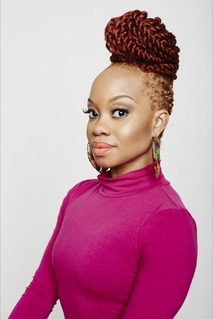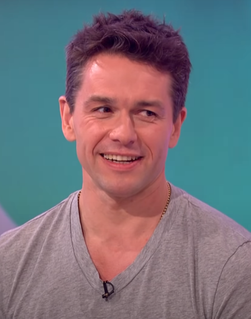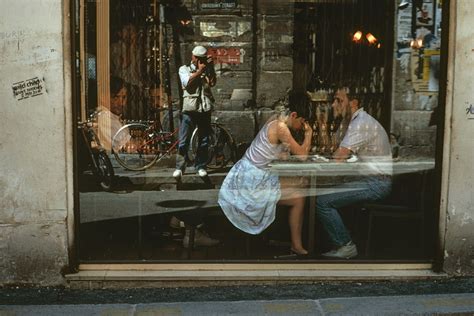A Quote by John Hurt
You carry that through and adapt it to a camera lens, but you're quite right, you cannot be sure of what an audience is going to do. You don't know what's going to happen to the piece you're doing anyway. You don't know how it's going to be edited. There are a lot more unknowns in cinema. But that you have to readily accept. That's when, I think, you have to forget about intellect, to a degree. Intuition is very important when you're working with a lens, I believe, for what the lens is doing, too.
Related Quotes
I think it's important for people to understand that dance, movement, choreography is about an experience and entertainment but it's also about perception and a lens. So when we're talking about a Black female's experience through a Black female's lens, that's going to be totally different from a Black female's perspective through a Black male's lens.
You are merely the lens in the beam. You can only receive, give, and possess the light as the lens does. If you seek yourself, you rob the lens of its transparency. You will know life and be acknowledged by it according to your degree of transparency - your capacity, that is, to vanish as an end and remain purely as a means.
I think that you have to have a really specific type of personality to be able to both direct and act, because it requires enormous shifts in perspective. I mean, when you're directing, you're looking at the world through a wide-angle lens, and you're seeing all of it. You know exactly what's happening in every corner of it. You know what people are going to say. You know what they're going to do. You're controlling everything.
Barack Obama didn't say "I only want to be the President of Black people," he said "I want to be the President of the United States and have something to say about the United States and my perspective and my lens is going to affect my judgment on everything" and that's the way a Christian should be. I'm going to invade culture and my lens and perspective is going to influence culture just as much as anyone else's.
The precise effects of lensing depend on the mass of the lens, the structure of space-time, and the relative distance between us, the lens, and the distant object behind it. It's like a magnifying glass, where the image you get depends on the shape of the lens and how far you hold it from the object you're looking at.
If I had stood at the free-throw line and thought about 10 million people watching me on the other side of the camera lens, I couldn't have made anything. So I mentally tried to put myself in a familiar place. I thought about all those times I shot free throws in practice and went through the same motion, the same technique that I had used thousands of times. You forget about the outcome. You know you are doing the right things. So you relax and perform.


































